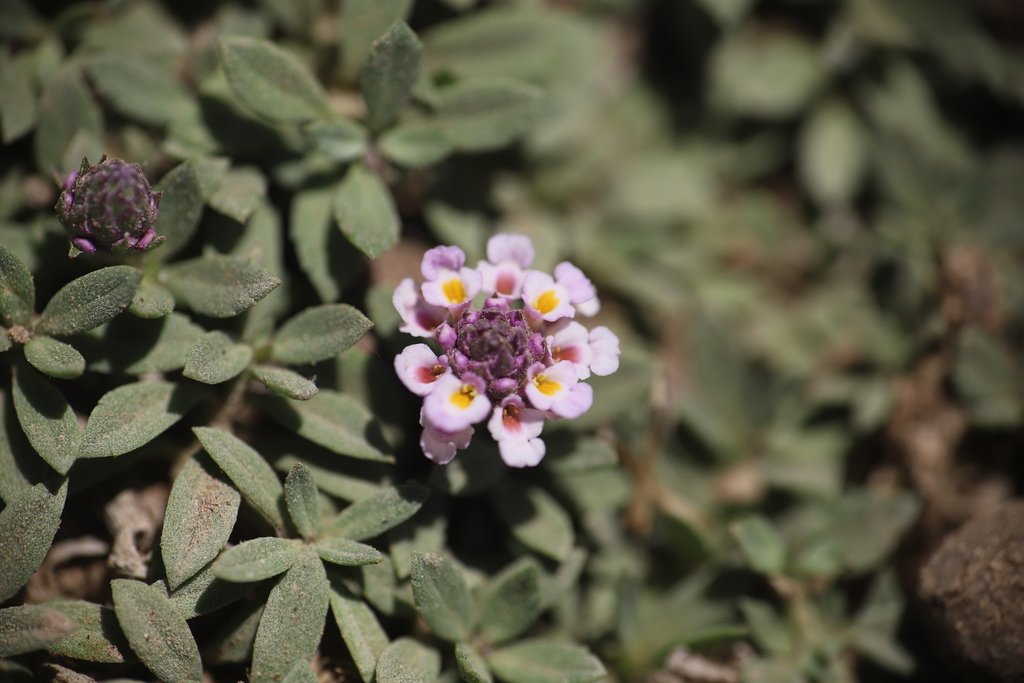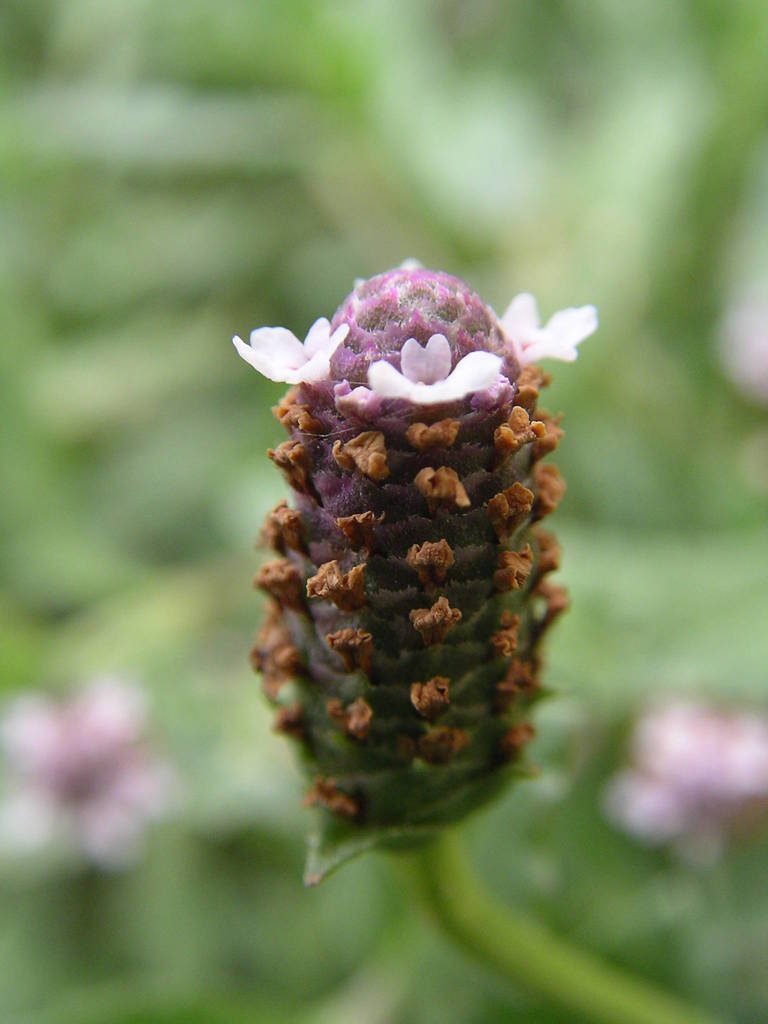Phyla nodiflora
Frogfruit
Family: Verbenaceae
Creeping perennial plant growing only a few inches high but spreading almost indefinitely. Some people use this as a lawn substitute. Pink, lavender, to white flowers occur in warm weather. This plant is also known as Turkey Tangle.
Full to part sun, regular water, hardy to 10°F.
Butterflies, and many other nectar-feeding pollinators love the flowers. Larval food plant for the common buckeye (Junonia coenia), Phaon Crescent (Phyciodes phaon), the White Peacock (Anartia jatrophae), and the subterranean dart moth (Feltia subterranea). This is a great plant for tortoise enclosures since tortoises eat the plant, and the plant grows fast, keeping up with the tortoise appetite.
Photo by Steven Bodzin, iNaturalist
Phyla nodiflora on SEINET
This plant is often used as a lawn substitute. Leaves are edible and are eaten raw, or sometimes made into tea. The plant is anodyne, antibacterial, deobstruent, diuretic, emmenagogue, parasiticide and refrigerant. It is used in the treatment of hookworm. The juice of the plant is cooling and is used to relieve fevers, coughs and colds. The aroma of the inhaled plant is breathed in to treat coughs and colds. The juice of the root is used in the treatment of gastric troubles.
Phyla is from the Greek word phyle, clan or tribe, alluding to the many flowers per spike; nodiflora means flowers from the nodes. Formerly known as Lippia nodiflora.
Found in moist, typically disturbed soils, from 3,000-6,500 ft. Originally suspected to be native to South America; but has spread throughout North America.




